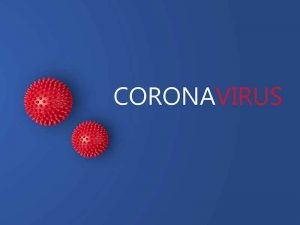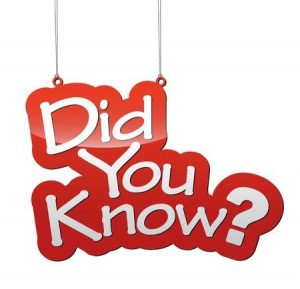
THE PRESIDENT’S CORONAVIRUS GUIDELINES FOR AMERICA

15 DAYS TO SLOW THE SPREAD
Listen to and follow the directions of your STATE AND LOCAL AUTHORITIES.
CONTACT YOUR MEDICAL PROVIDER IF:
1. IF YOU FEEL SICK, stay home. Do not go to work.
2. IF YOUR CHILDREN ARE SICK, keep them home. Do not send them to school.
3. IF SOMEONE IN YOUR HOUSEHOLD HAS TESTED POSITIVE for the Coronavirus, keep the entire household at home.
IF YOU ARE AN OLDER PERSON, stay home and away from other people.
IF YOU ARE A PERSON WITH A SERIOUS UNDERLYING HEALTH CONDITION that can put you at increased risk (for example: a condition that impairs your lung or heart function or weakens your immune system), STAY HOME AND AWAY FROM OTHER PEOPLE.
CHRIST has RISEN

Easter: April 12, 2020
Easter, also called Resurrection Sunday, is a holiday commemorating the resurrection of Jesus from the dead. Jesus died roughly 2000 years ago in a city called Jerusalem (most of Jerusalem is in the modern country of Israel). The people who killed him did so because they believed that he was causing trouble for the government and because he was claiming to be the Messiah. When they crucified him (meaning they nailed him to a cross), they even hung a sign over his head, which said, “King of the Jews”. The day he was crucified is known by Christians as Good Friday.
The New Testament states that on the Sunday after Jesus was killed, his body was no longer in the tomb where he was laid. Later, Jesus is said to have appeared to over 500 people and preached to them. The New Testament teaches that the resurrection of Jesus is what Christianity is based on. The resurrection made people believe that Jesus was the powerful Son of God. It is also spoken of as proof that God will judge the world fairly. Christians believe that God has given Christians “a new birth into a living hope through the resurrection of Jesus Christ from the dead”. Christians believe that through faith in God they are spiritually made alive with Jesus so that they may lead a new life.

Waste Stream & Paint Yard Crew

Not Pictured: Orville Cupit

| Oscar Brassfield 4/16/2001 | Guy Buzan 4/12/2013 | Bryce Miller 4/15/2019 |
| Jimmy O’Donnell 4/11/2005 | John Howser 4/22/2016 | Dylan Cherry 4/22/2019 |
| William Simmons 4/20/2006 | Delbert Roberts 4/27/2017 | Paul White 4/22/2019 |
| Benny Johnson 4/4/2011 | Keith Roberts 4/27/2017 | Trevor White 4/22/2019 |
| Julio Navarro 4/27/2011 | Leland Simpson 4/27/2018 | Trey Williams 4/22/2019 |
| Trenton Barrett 4/20/2012 | David Boswell 4/15/2019 | Curtis Franklin 4/24/2019 |
Your hard work & dedication are vital to the success of our company.
Thank you for the wonderful years of service.

Bob Bauer, Billy Cherry, Travis Eastep, Wendell Gantt,
Brandon Gossett, Dawn Hankins, Michael Hankins,Benny Johnson,
Bryce Miller, Gallagher Smith, Michael Swift, & Greg Winer!

The winner for the Gun Raffle of the Ruger American Rifle was Tommy Williams from our Gillham office!
Congratulations Tommy!

Everything you need to know about the Stimulus Payments
Article by: TaxAct
It’s official. The largest emergency aid relief in U.S. history was just signed into law to address the economic impact of the Coronavirus. Named the CARES Act, this monumental $2 trillion stimulus package is intended to provide relief to individuals, businesses, and industries who have taken a financial hit over the last several weeks. Of course, the star of the stimulus package is the $250 billion designated for direct payments to Americans. Yeah, you read that right. You are probably getting a check. To help you better understand the stimulus payments and determine if you qualify, we’re here to answer the most common questions.
Who qualifies for the stimulus money and how much is the payment?
The short answer – most everyone will qualify for some amount of money. You must have a Social Security number and not be a dependent of someone else. Here are the specifics:
- Individuals (aka Single filing status) who have an adjusted gross income (AGI) of $75,000 or less are eligible to receive the full payment amount, which is $1,200. That payment reduces by $5 for every $100 in income above $75,000. Reduced payments will go out to individuals who earn up to $99,000 a year. If you earn more than $99,000, you will not receive a payment.
- Married couples with an AGI of $150,000 or less are eligible to receive a full payment amount of $2,400. That payment also reduces by $5 for every $100 over the $150,000 mark for couples who earn up to $198,000. Those who have an AGI that’s more than $198,000 are not eligible to receive a payment.
- Head of Household filers who have an AGI of up to $112,500 are eligible to receive a $1,200 payment. Reduced payments will be sent to Head of Household filers with an AGI of up to $136,500. Those who earn more than $136,500 are not eligible to receive a payment.
Check line 8b on your 2019 1040 federal tax return to find your AGI. If you haven’t filed your 2019 return yet and need to refer to your 2018 AGI, check line 7 on Form 1040.
But what if I have children?
Good news! If you have children under the age of 17, you may qualify to receive an extra $500 for each one. Unfortunately, that means if your child is over the age of 17 you will not qualify for extra money.
My child is in college, do I get anything extra?
Unfortunately, no. To qualify for the extra $500 your child must be younger than age 17. And to answer your next question – no, your high school or college student who is 17 or older cannot file their own tax return to receive a stimulus payment if they qualify to be claimed as a dependent on your return. That’s true even if you choose not to claim them. If they pass the dependent test, they are always considered a dependent. That said, this is one of the more confusing areas of the bill. We anticipate the Treasury will release further guidance.
What about people who are on Social Security or who don’t earn an income?
If you are on Social Security or otherwise don’t earn an income, you still qualify for the relief payments. That is as long as your total income does not exceed the income thresholds mentioned above. That’s true even for people whose income comes entirely from non-taxable means-tested benefit programs, such as SSI benefits. In the first draft of the bill, the payments were limited to those who earned income. That is no longer the case.
How do I get the payment? Do I need to do anything?
You don’t need to worry about doing anything. The payments will come automatically. If you already filed your 2019 tax return, the federal government already has the most up-to-date information needed to accurately assess how much your payment should be and send it to you. If you haven’t completed your 2019 return, we recommend filing as soon as you can so you receive the most accurate payment. Filing now also helps to ensure your bank account and home address information is up to date so there is no question about where the money should be sent. If you don’t file your return by the time the payments go out, your 2018 AGI will be used to determine how much you are due. For retirees who are not required to file a return and receive Social Security benefits, the information needed to accurately assess your payment and send it to you is collected from what’s on file with the Social Security Administration (SSA). As long as you received a SSA-1099 form (the Social Security benefit statement), the federal government will send your payment the same way they send your Social Security payment. Disabled individuals are also eligible for the payment.
When will I receive my money?
Treasury Secretary Steven Mnuchin initially stated his goal was to get the first payments issued the week of April 6. Many experts, however, have stated that may be too ambitious of a goal. They speculate it will likely be later in April. In 2008, the stimulus payments went out in batches. It took roughly eight weeks for everyone to receive their checks. We will update this section once a more definitive plan is set into motion.
How will I receive it?
To promote social distancing and get the money in the hands of Americans as fast as possible, the federal government prefers to send the payments via direct deposit. Going the direct deposit route allows you to receive your payment much quicker. If you don’t have a direct deposit option, however, other solutions are available. Paper checks will be sent if necessary.
Will I be notified?
The Treasury will send you a notice of the payment by mail to your last known address. It will list how the payment was made plus the amount deposited. If you don’t receive the payment, the notice will also include a phone number for the appropriate point of contact at the IRS. Until you receive your payment, hold onto the notice.
Is this money taxable?
No, the payments are not taxable.
How does that work?
Technically, the money is an advance of a refundable credit on your 2020 return. A refundable credit is a tax benefit you can take advantage of even if you do not owe any tax. If you qualify to claim it, any money that isn’t needed to pay down your tax liability is refunded to you. Basically, the stimulus payments are advance refunds based on your 2020 income. If you’re confused, that’s understandable; it is confusing. Obviously, no one can be sure how much you’re going to earn in 2020. That’s why the IRS is basing how much you’re due off prior year tax returns. When you file your 2020 return, the IRS will compare what you received this year for the credit with what you qualify for based on your 2020 income. If you should have received a payment and didn’t, or if you should have received more than you did, you will receive additional money. If the numbers on your 2020 tax return suggest you got more than you should have, you won’t have to pay it back. Considering most people’s incomes don’t fluctuate too much from year to year, most everyone should receive the right amount the first go-around.
Will this affect my 2019 refund?
No, these stimulus payments will not change your 2019 refund or impact your anticipated 2020 refund.
What if I owe money to the IRS for prior years?
Lucky for you, you don’t have to worry about that. Any IRS liabilities you currently have, including any back taxes, won’t be taken out of this money. You’ll still receive your full payment.
For the official notices, visit the IRS’ Coronavirus Tax Relief page.
